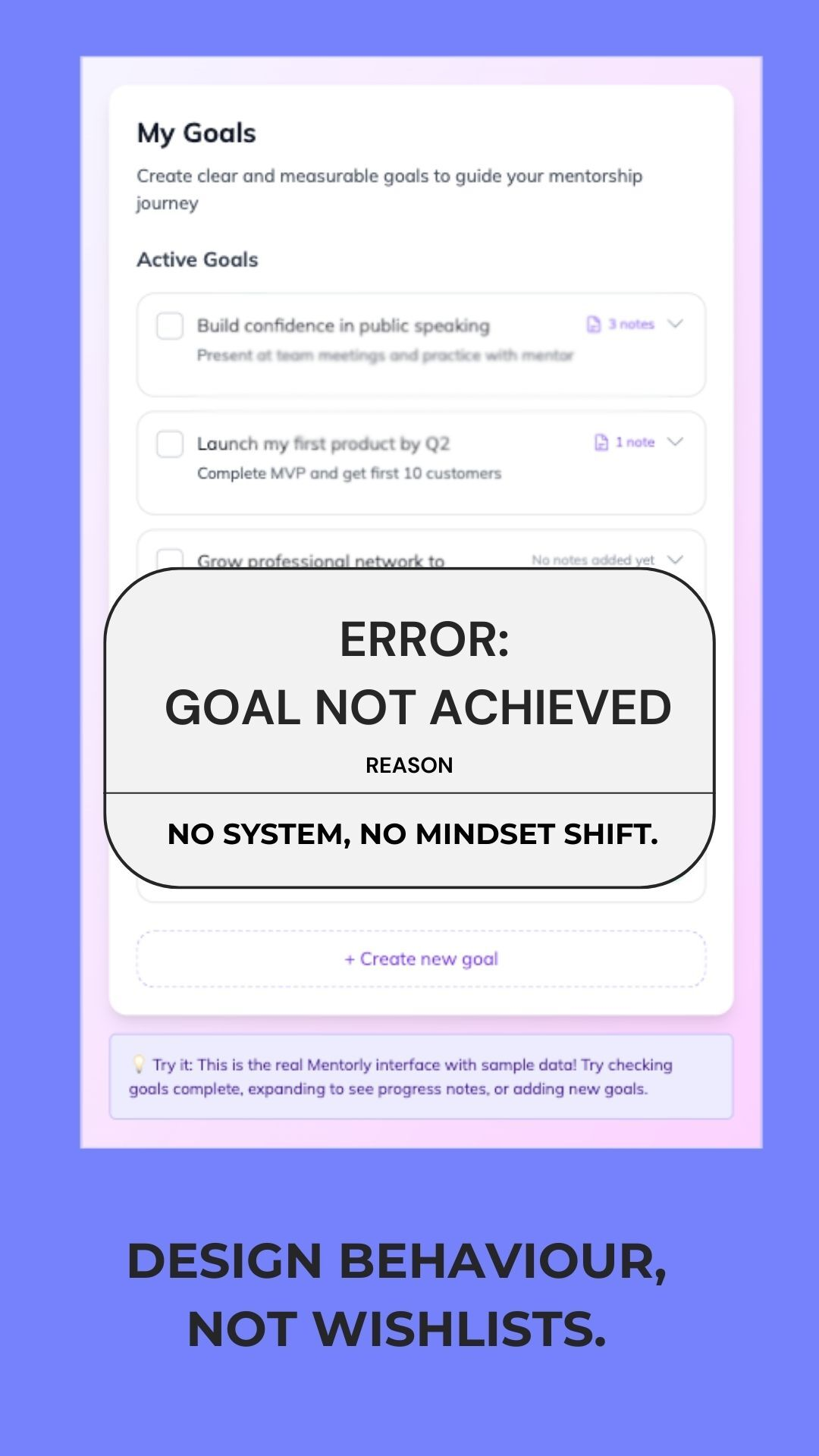The Manager Overwhelm Epidemic: Building Leadership Development Programs That Actually Prepare Leaders for Modern Challenges
Managers today are drowning. They're expected to be coaches, therapists, strategic thinkers, project managers, performance evaluators, and culture builders—often without adequate preparation for any of these roles.
Draft Article
This is a draft version of this blog post and has not been published yet. Content may be incomplete or subject to changes.
Managers today are drowning. They're expected to be coaches, therapists, strategic thinkers, project managers, performance evaluators, and culture builders—often without adequate preparation for any of these roles. The result is an epidemic of manager overwhelm that's devastating organizational performance and employee engagement.
Recent research reveals that 75% of HR leaders report their managers are overwhelmed, while 70% admit their current leadership development programs aren't preparing managers for the realities they face. The gap between leadership training and actual management challenges has never been wider, and it's time for a fundamental reimagining of how we develop leaders.
The Modern Manager's Impossible Job
Today's managers face unprecedented complexity. They're managing hybrid teams across time zones, navigating constant change, supporting employees through personal and professional challenges, and delivering results with limited resources. Meanwhile, traditional leadership development programs still focus on outdated competencies that don't address these realities.
The Overwhelm Symptoms
Manager overwhelm manifests in predictable ways: increased turnover in management roles, declining team performance despite individual talent, higher stress-related absences among managers, reduced quality of employee development conversations, and reactive rather than strategic decision-making.
These symptoms create a cascade effect throughout the organization. Overwhelmed managers become bottlenecks rather than enablers, team members disengage when they don't receive adequate support, and organizational agility suffers as decision-making slows down.
Why Traditional Leadership Development Fails
Theoretical vs. Practical Gap
Most leadership programs focus on conceptual frameworks rather than practical skills application. Managers learn about emotional intelligence in a classroom but aren't taught how to have difficult conversations with underperforming team members or support employees through personal crises.
One-Size-Fits-All Approach
Traditional programs assume all managers face similar challenges and can be developed using identical approaches. The reality is that managing a remote tech team requires different skills than leading a customer service department or overseeing a manufacturing unit.
Insufficient Ongoing Support
Leadership development is often treated as a one-time event rather than an ongoing capability-building process. Managers attend a program, receive their certificate, and then struggle to apply their learning without continued support and reinforcement.
Building Manager-Ready Leadership Programs
Competency-Based Development
Design programs around the specific competencies managers need to succeed in their actual work environment. These include practical skills like managing virtual teams effectively, conducting meaningful performance conversations, making decisions with incomplete information, and balancing competing priorities.
Essential modern management competencies:
- Digital leadership and virtual team management
- Coaching and development conversations
- Change management and adaptability
- Mental health awareness and support
- Data-driven decision making
- Cross-functional collaboration
- Crisis management and resilience building
Experiential Learning Design
Replace lecture-heavy programs with experiential learning that mirrors real management challenges. Use simulations, case studies based on actual organizational situations, peer coaching circles, and action learning projects that allow managers to practice skills in low-risk environments.
Effective formats: Role-playing difficult conversations, crisis simulation exercises, 360-degree feedback with coaching, cross-departmental shadowing opportunities, and reverse mentoring partnerships.
The Coaching-First Manager Model
Modern managers need to shift from command-and-control leadership to coaching-oriented approaches that develop team capabilities rather than create dependency.
Coaching Skills Integration
Train managers in fundamental coaching skills: active listening, powerful questioning, goal setting and accountability, feedback delivery, and supporting employee self-reflection and problem-solving. These skills enable managers to develop their teams while reducing their own workload over time.
The Development Mindset
Help managers adopt a development mindset that views every interaction as a potential learning opportunity for their team members. This approach transforms routine tasks into skill-building experiences and reduces the manager's need to solve every problem personally.
Managing Hybrid and Remote Teams
The shift to hybrid work has fundamentally changed management requirements. Managers need new skills for building trust remotely, maintaining team cohesion across locations, and ensuring productivity without micromanagement.
Virtual Leadership Competencies
Develop specific skills for virtual leadership including running effective virtual meetings, maintaining team culture in distributed environments, providing remote feedback and coaching, managing performance across time zones, and building relationships without face-to-face interaction.
Practical tools: Structured virtual one-on-ones, digital collaboration best practices, remote team building strategies, and asynchronous communication guidelines.
Mental Health and Wellbeing Support
Managers increasingly serve as the first line of mental health support for their teams. They need training to recognize warning signs, provide appropriate support, and know when to escalate to professional resources.
Manager as Mental Health Ally
Train managers to create psychologically safe environments, recognize signs of stress and burnout, have supportive conversations about mental health challenges, connect employees with appropriate resources, and maintain boundaries between support and therapy.
This training should include practical scenarios and clear guidelines about what managers should and shouldn't do when employees share personal challenges.
Data-Driven Management Skills
Modern managers need to be comfortable with data analysis and evidence-based decision making. This includes understanding team performance metrics, using data to identify development opportunities, and making objective decisions about performance and potential.
Analytics for Managers
Provide training on interpreting people analytics, using data to improve team performance, measuring the impact of management interventions, and balancing quantitative data with human insight.
Micro-Learning and Just-in-Time Support
Replace lengthy leadership programs with micro-learning modules that managers can access when facing specific challenges. This approach provides relevant support exactly when it's needed rather than requiring managers to remember training from months earlier.
On-Demand Leadership Support
Create libraries of short, actionable resources covering common management challenges: handling team conflicts, managing up effectively, delegating appropriately, giving difficult feedback, and supporting career development.
Implementation approach: Develop mobile-friendly resources, create searchable databases of management tools, provide chatbot support for common questions, and establish peer networks for real-time advice.
Succession Planning and Career Development
Prepare managers not just for their current roles but for future leadership positions. This includes strategic thinking skills, organizational awareness, change leadership capabilities, and the ability to develop other leaders.
Leadership Pipeline Development
Create clear pathways from individual contributor to senior leadership with specific competency requirements at each level. Provide stretch assignments, cross-functional projects, and mentoring opportunities that prepare managers for increased responsibility.
Measuring Leadership Development ROI
Track metrics that demonstrate the business impact of improved management capabilities. Monitor manager retention rates, team engagement scores, employee development metrics, project success rates, and overall team performance indicators.
Advanced metrics: Manager confidence levels, quality of development conversations, employee promotion rates from high-performing teams, and correlation between management training and business outcomes.
Creating Manager Communities
Develop peer networks where managers can share challenges, solutions, and best practices. These communities provide ongoing support and reduce the isolation that often contributes to manager overwhelm.
Peer Learning Networks
Establish manager circles focused on specific challenges, create mentoring partnerships between experienced and new managers, facilitate cross-departmental manager exchanges, and provide platforms for sharing management innovations.
The Future of Management Development
The most successful organizations will be those that view management development as an ongoing capability rather than a training event. They'll provide continuous support, practical tools, and peer networks that help managers thrive in increasingly complex environments.
The manager overwhelm epidemic is a solvable problem, but it requires fundamental changes to how we develop leaders. Organizations that invest in practical, ongoing management development will see improved employee engagement, better business results, and reduced turnover in critical management roles.
The choice is clear: continue with outdated leadership development approaches and watch managers struggle, or invest in comprehensive management support systems that enable leaders to succeed in the modern workplace.



